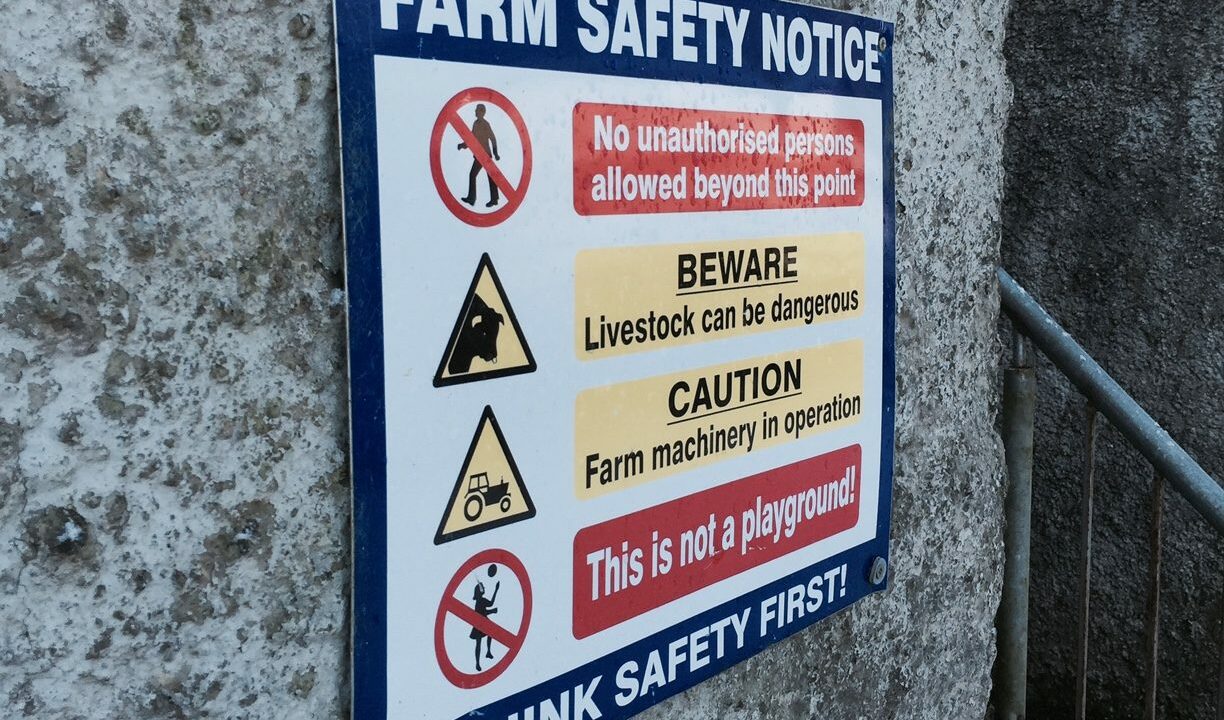The days of farmers being able to help each other out is a thing of the past, according to Sinn Fein’s Agriculture Spokesperson, Martin Kenny.
The Sinn Fein TD believes that the drop in farm incomes has put a stop to farmers seeking help with dangerous tasks.
Kenny was speaking following the release of a report from the Economic and Social Research Institute (ESRI), which revealed that farming is the occupation with the highest risk of fatalities in the country.
In farming, the risk of fatalities was nearly ten times higher than the average across occupations between 2009 and 2015, the report outlined.
The ESRI report also highlighted that getting help with difficult tasks is key to improving farm safety, Kenny said.
“Farmers being able to help each other out, like they used to, is a thing of the past in rural Ireland, because farm incomes have dropped to such an extent that most farmers are part-time and the possibility of neighbours helping each other is gone.
It used to be the norm that neighbours would help each other out for cattle tests, dipping sheep or other labour intensive or dangerous tasks on the farm.
“Very often, it is the thing that you get away with a thousand times – especially when working with machinery – that goes wrong once, with tragic results.
“Having proper protective guards on machinery is essential, particularly around PTO shafts and hydraulic pipes,” Kenny said.
Farmers need to be aware at all times while working with machinery and take all the precautions available; working alone with machinery is always a risk, he added.
Is the help out there?
Meanwhile, the findings of this ESRI report should cause public representatives and agencies to reflect on the seriousness of this issue, the Irish Cattle and Sheep Farmers’ Association’s (ICSA) President, Patrick Kent, said.
In the past, some public representatives and agencies have tended to pass the blame for farm safety issues on to farmers, Kent added.
We have seen examples of this in terms of hysterical calls to cut farm subsidies or to impose fines; when, in fact, this would further exacerbate a root cause, which is that farmers can neither afford nor find extra help on farms – particularly at busy times.
The pressure being put on farmers to work harder and to increase output cannot continue without adverse consequences, he continued.
“We see the madness of farmers expanding stock numbers significantly without any real understanding of how all the extra work can be performed.
“The traditional 60-cow dairy farm which used to deliver a good standard of living is derided as small scale. Worse still is that most cattle and sheep farms are no longer viable and can only be sustained by off-farm work,” Kent said.
How does a farmer get the extra help for difficult tasks, when many of his neighbours are gone by day working in the off-farm job and rushing to catch up in the evenings when they come home, the ICSA’s President asked.
As it stands, Farm Relief Services are unable to keep up with the demand for help at busy times, Kent said; he also believes that it simply isn’t possible to hire competent help at the minimum wage any more in many parts of the country.
With more and more family members abandoning rural areas to work in the cities, the traditional source of help is drying up and the age profile of farmers is getting worse by the year.
“I would seriously question the finding that age was not closely linked to farm safety, when we see years where over 25% of fatalities involve farmers who are past retirement age in other sectors,” he said.


